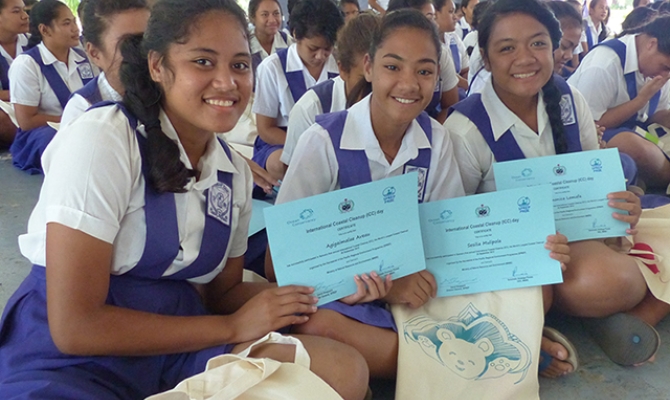
Waste Management and Pollution Control
Today in Vaimoso, 88 students and five teachers from St Mary's College were presented with certificates of appreciation and small gifts for their enthusiastic participation in September's International Coastal Cleanup - the world's largest single day volunteer effort to clean up beaches and rivers.
This year, Samoa participated in the International Coastal Cleanup for the first time, thanks to a partnership between the Secretariat of the Pacific Regional Environment Programme (SPREP) and Samoa's Ministry of Natural Resources and Environment (MNRE).
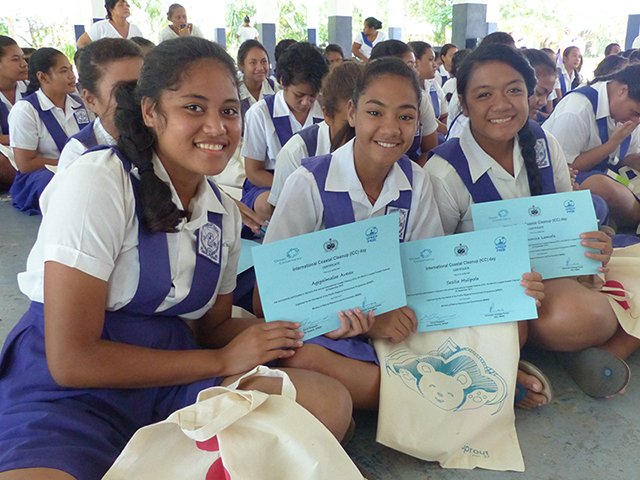
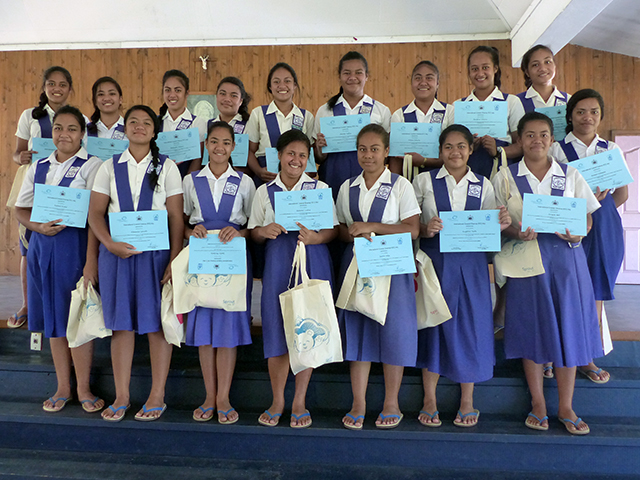
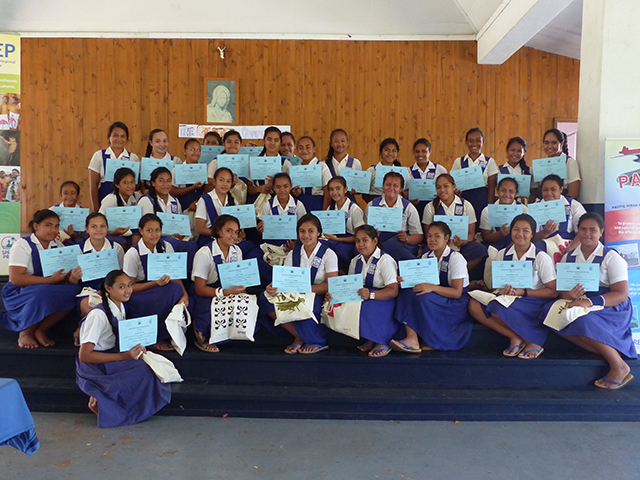
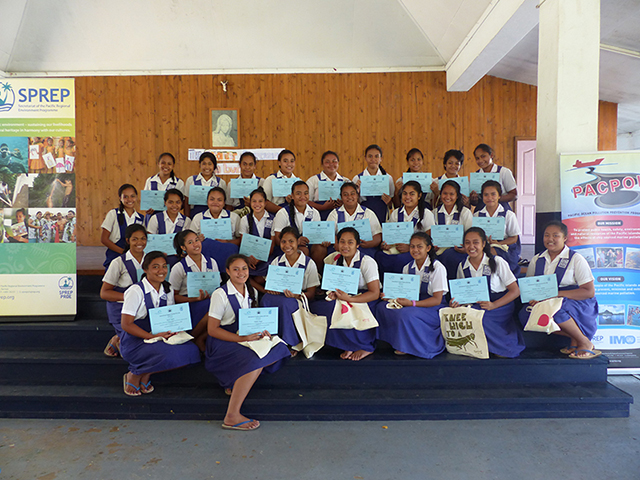
The awards were presented by Dr David Haynes, Director of the Waste Management and Pollution Control division at SPREP, Mr Anthony Talouli, SPREP's Pollution Adviser, and Mr Fata Eti Malolo, Principal Water Resource Officer from MNRE.
Speaking at the award ceremony, Mr Talouli commended the students for their commitment and highlighted the important role that young people play as future stewards of the Earth, its environment and resources:
"A valuable message to remember is to 'waste not'. This is an important message on two levels – firstly, don't waste the opportunity's that you've been given in this life and second, do your part to reduce the volume of rubbish that we consume and discard."
To support the four principles of 'reduce, reuse, recycle and refuse', the students and teachers of St Mary's were presented with reusable cups and bags, made from recycled materials.
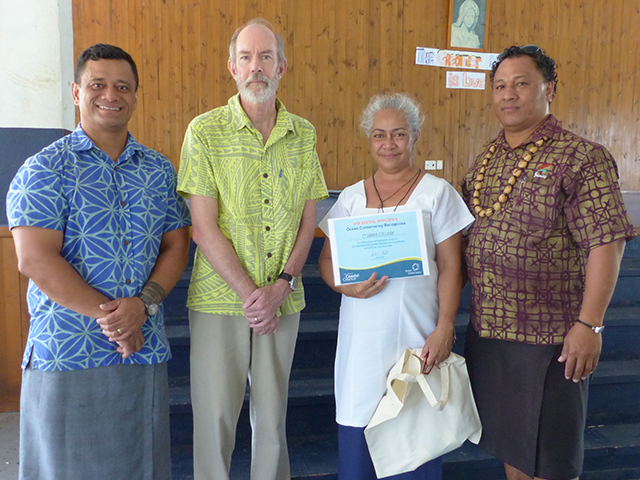
The International Coastal Cleanup – supported by the Ocean Conservancy – took place in Samoa on Saturday 26 September, 2015 with over 200 people participating.
In just one day, volunteers cleaned up around 1,030 kilograms of rubbish from the Gasegase River, and 135 kilograms of rubbish from Apia Harbour, all of which was sorted and sent to either recycling facilities or the landfill.
This year, Samoa participated in the International Coastal Cleanup for the first time, thanks to a partnership between the Secretariat of the Pacific Regional Environment Programme (SPREP) and Samoa's Ministry of Natural Resources and Environment (MNRE).




The awards were presented by Dr David Haynes, Director of the Waste Management and Pollution Control division at SPREP, Mr Anthony Talouli, SPREP's Pollution Adviser, and Mr Fata Eti Malolo, Principal Water Resource Officer from MNRE.
Speaking at the award ceremony, Mr Talouli commended the students for their commitment and highlighted the important role that young people play as future stewards of the Earth, its environment and resources:
"A valuable message to remember is to 'waste not'. This is an important message on two levels – firstly, don't waste the opportunity's that you've been given in this life and second, do your part to reduce the volume of rubbish that we consume and discard."
To support the four principles of 'reduce, reuse, recycle and refuse', the students and teachers of St Mary's were presented with reusable cups and bags, made from recycled materials.

Pictured above (from left – right): Anthony Talouli (SPREP), David Haynes (SPREP), Loretta Ulugia (St Mary's College) and Fata Eti Malolo (MNRE). Photo: A.Carvan/SPREP
The International Coastal Cleanup – supported by the Ocean Conservancy – took place in Samoa on Saturday 26 September, 2015 with over 200 people participating.
In just one day, volunteers cleaned up around 1,030 kilograms of rubbish from the Gasegase River, and 135 kilograms of rubbish from Apia Harbour, all of which was sorted and sent to either recycling facilities or the landfill.